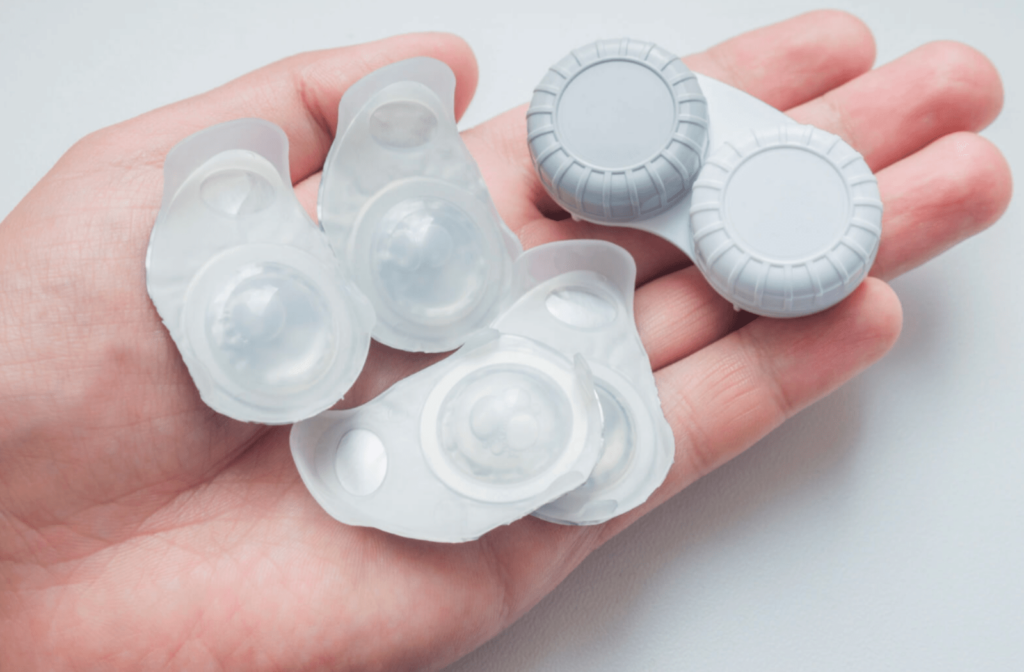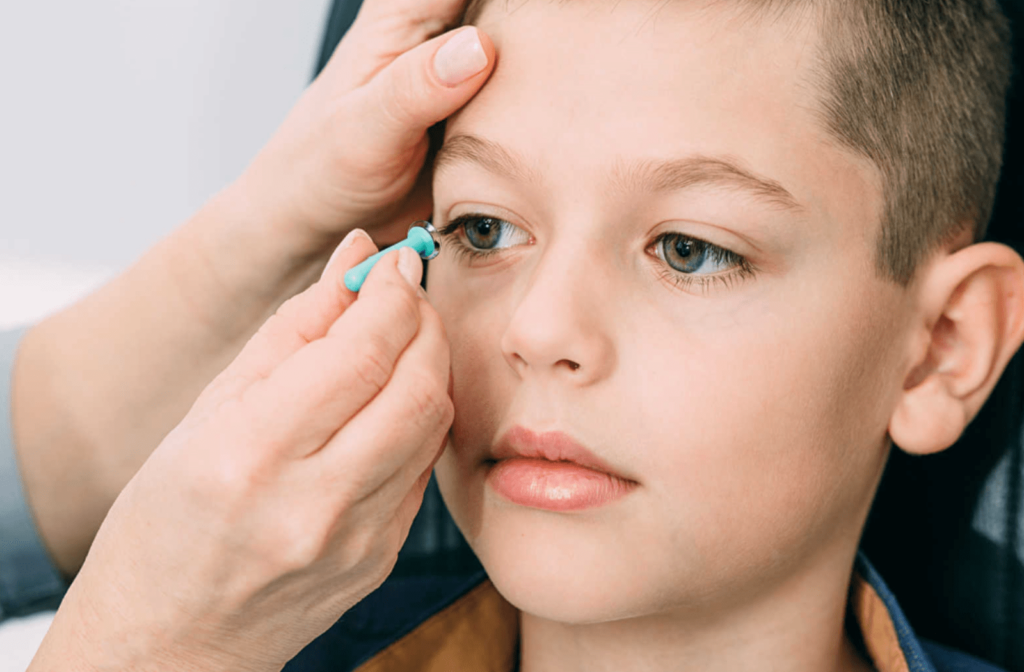One of the most common complaints that eye doctors hear from patients is that their contact lenses make their eyes dry. If you have dry eyes, you may have noticed that contact lenses can aggravate your symptoms.
While both contact lens wearers and non-wearers experience dry eye syndrome (DES), the symptoms can be more severe and uncomfortable if you wear contact lenses.
This doesn’t always have to be the case. Even if you have dry eyes, you can see clearly and comfortably all day with the right advice and the right contact lenses, including options in soft, rigid gas permeable, and scleral varieties.
What Is Dry Eye Disease?
Dry eye disease is a common condition in which your tears are unable to effectively lubricate your eyes. Your tears keep your eyes moist and free of debris, but tear film instability can cause dry, irritated eyes.
Some symptoms of dry eye disease include:
- A stinging or burning sensation in your eyes
- Watery eyes
- Light sensitivity
- Blurred vision
- Red eyes
- Difficulty wearing contact lenses
Your tear film is extremely important to your eye comfort, and if you don’t produce enough tears or if your tear film lacks certain ingredients, you can experience dry eyes. The tear film is made up of 3 layers:
- An oily layer
- A watery layer
- A mucus layer
Dry eyes are classified into 2 types: poor tear quality and insufficient tear volume.
Poor Tear Quality
The meibomian glands along the edge of your eyelids can clog, preventing a sufficient amount of oil from being secreted with your tears. If you don’t have enough oil in your tears, they can evaporate and dry out quickly, which is known as evaporative dry eye (EDE).
Insufficient Tear Volume
Aqueous deficient dry eye (ADDE) occurs when there is a lack of the water component in your tears.
Tears lubricate, hydrate, and protect your ocular surface, and if you don’t have enough, each blink may be painful.
Which Contact Lenses Can Help with Dry Eyes?
Contact lens wearers are more likely to develop dry eyes because the contact lens on the cornea (the front of your eye) can partially block oxygen from entering the eye. Contacts can absorb a lot of liquid from the tear film, causing the eye to lose important moisture.
This effect can be magnified if the lenses are not designed with dry eye disease in mind. Contact lenses come in a variety of styles, and each type has its benefits.

Soft Contact Lenses
In many cases, contact lens buildup can contribute to dry eye. Makeup, oils, and other substances can accumulate and cause irritation over time.
With daily disposable soft contact lenses, you use a new pair of contacts every day, which reduces the possibility of buildup. It also eliminates the need to store contact lenses overnight, making soft daily disposables easier to care for.
Soft contact lenses are classified according to the amount of water they contain. Lenses with a high water content are more likely to cause dry eyes than lenses with low water content because they dry out faster.
You may need to experiment with various water-content lenses until you find the one that works best for you.
Rigid Gas Permeable Lenses
Rigid gas-permeable lenses are made of harder plastics than soft contact lenses, but are oxygen-permeable, which means they allow air to pass through, allowing your eyes to “breathe.”
Because the materials they’re made of allow more oxygen through, they provide a better oxygen supply.
Scleral lenses, a type of rigid gas-permeable lens, can help alleviate dry eye symptoms.
Scleral Lenses
Scleral lenses differ from standard rigid gas-permeable lenses in that they have a larger diameter (about 15–22 millimetres across) and vault over the cornea rather than sitting directly on it, resulting in a tear-filled space between the lens and the eye. This fluid cushion protects the cornea from irritation, keeps the eyes hydrated, and has been shown to help many patients with dry eyes.
Dry Eye Relief
There many ways to get relief from your dry, red, irritated eyes. Find your dry eye solution today by booking an appointment with us. If you have any questions, give us a call.



